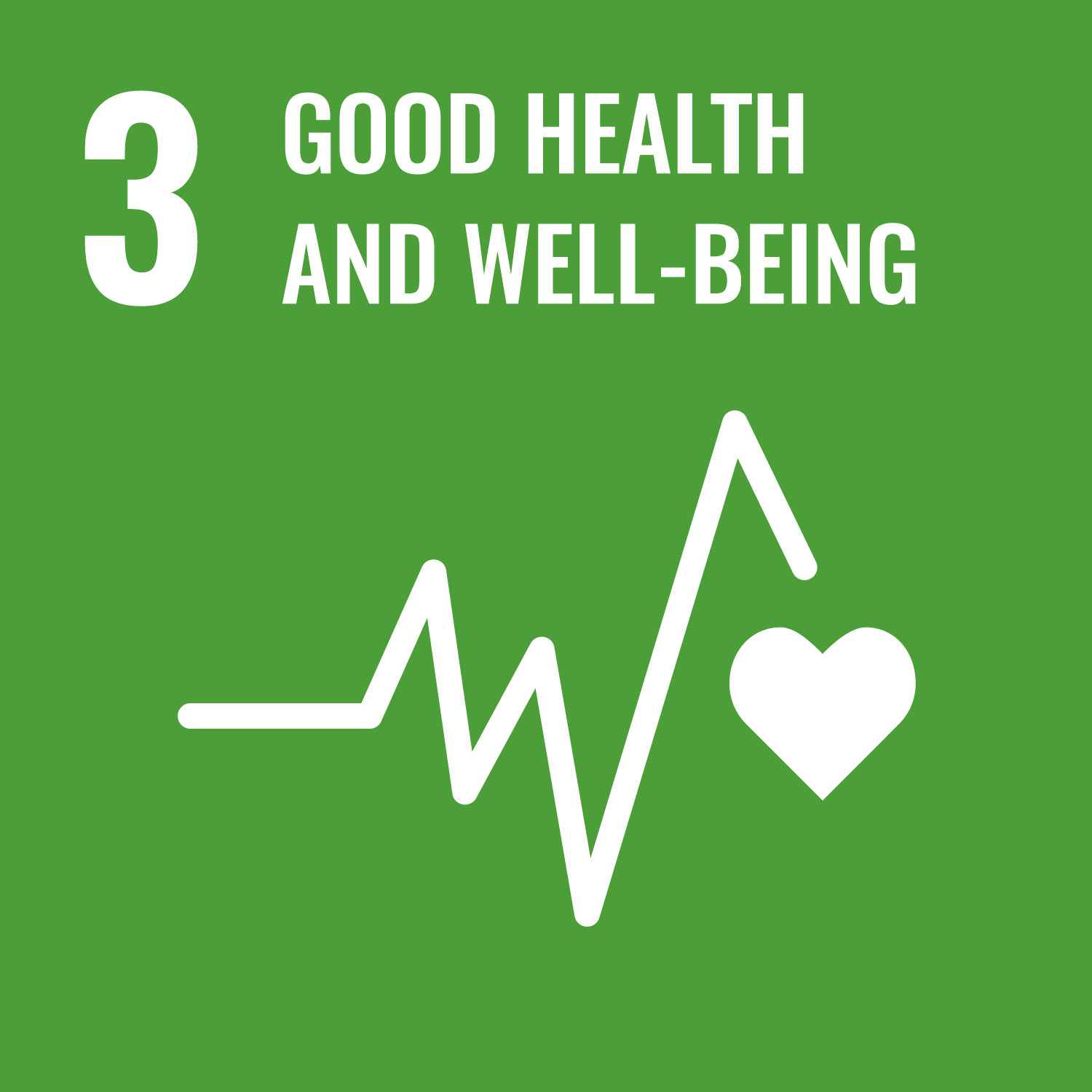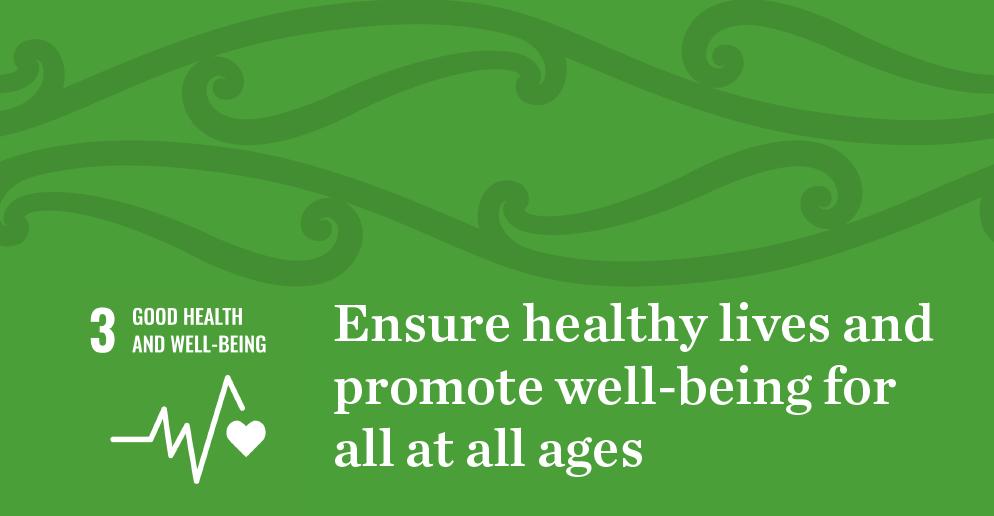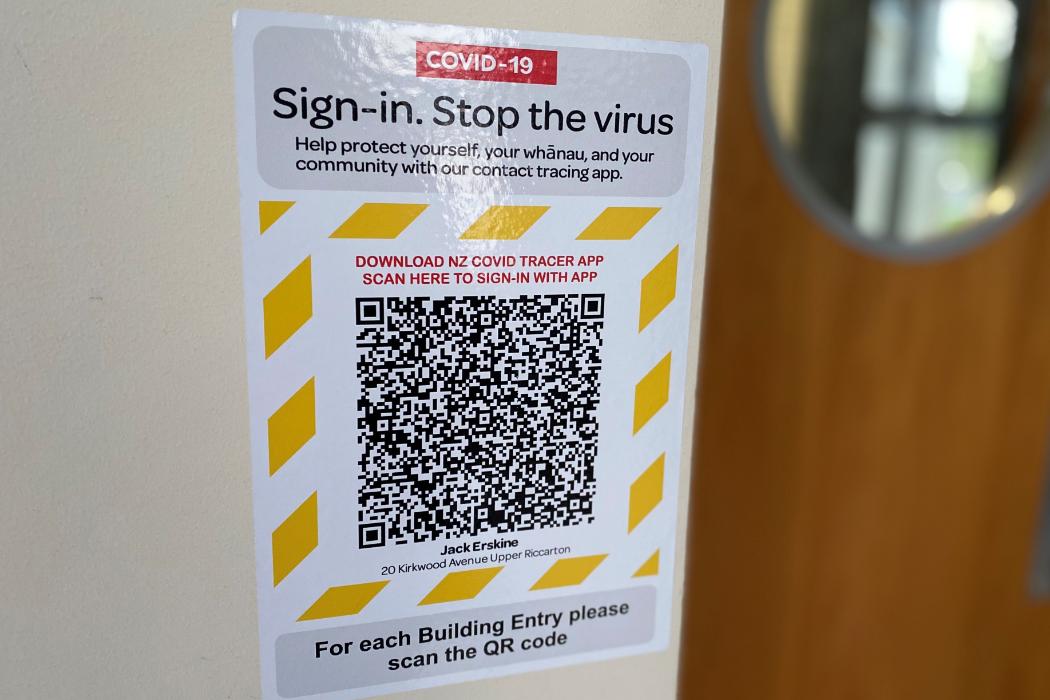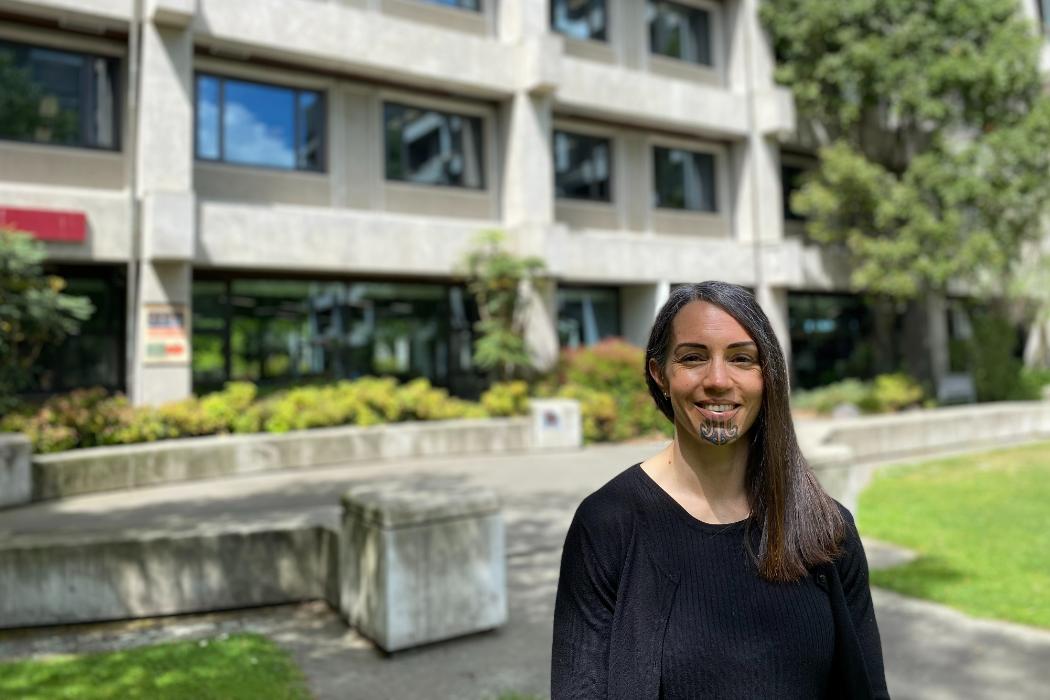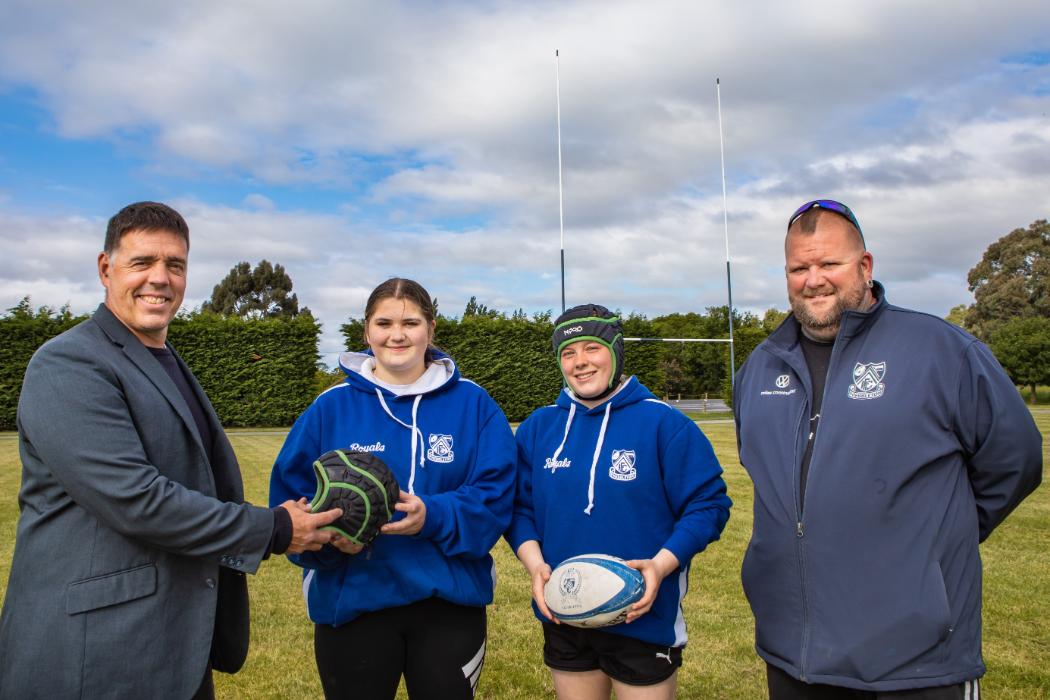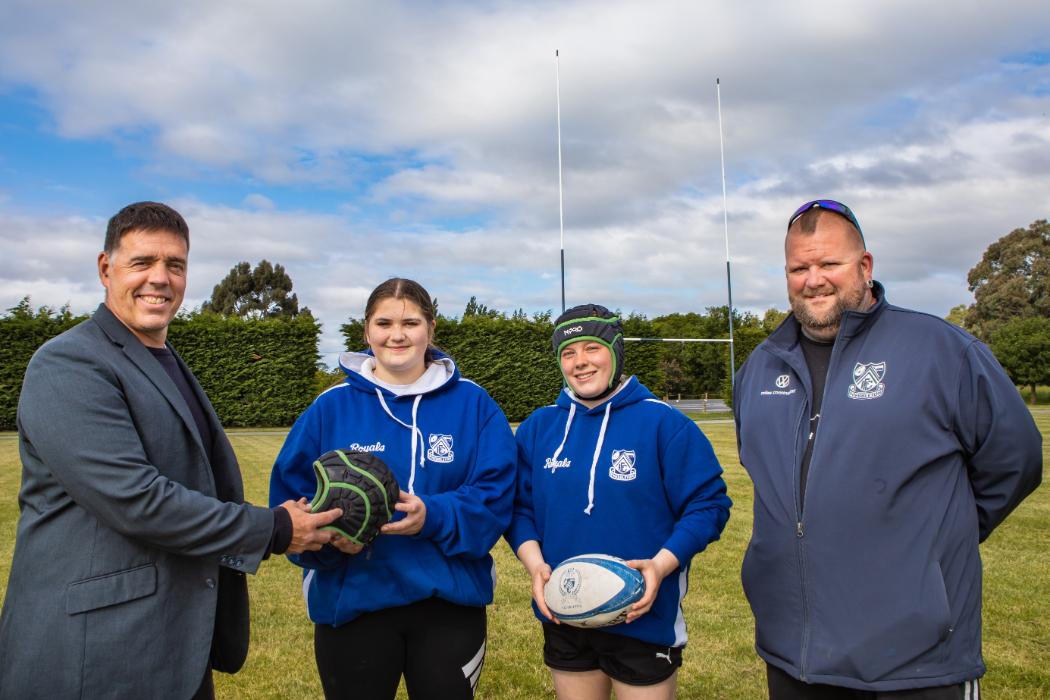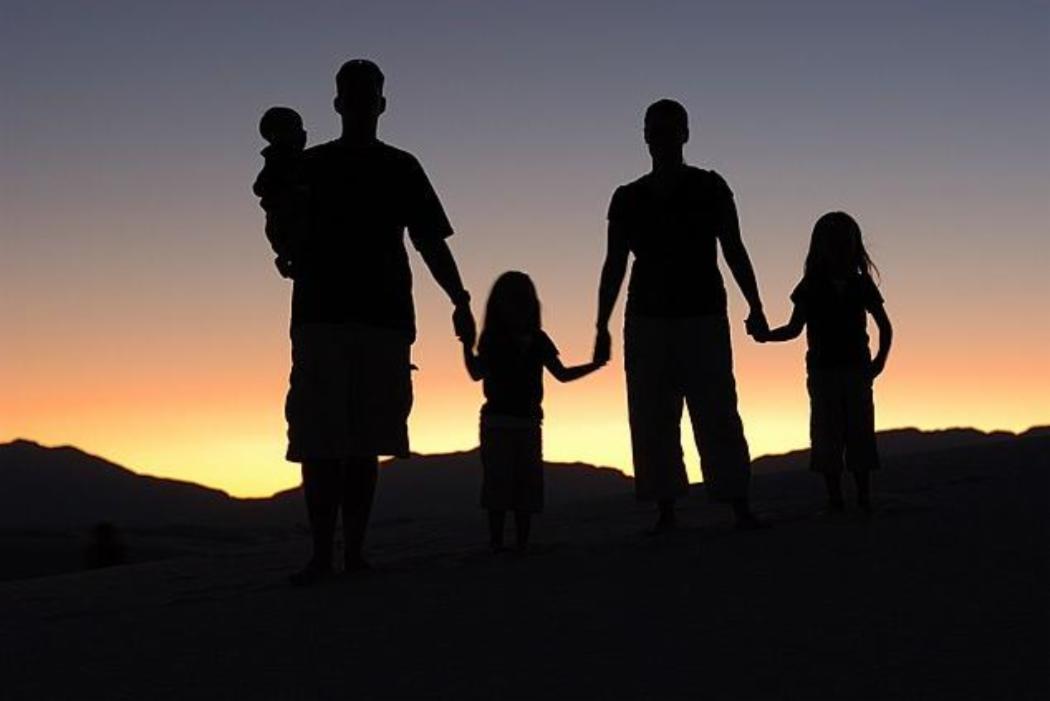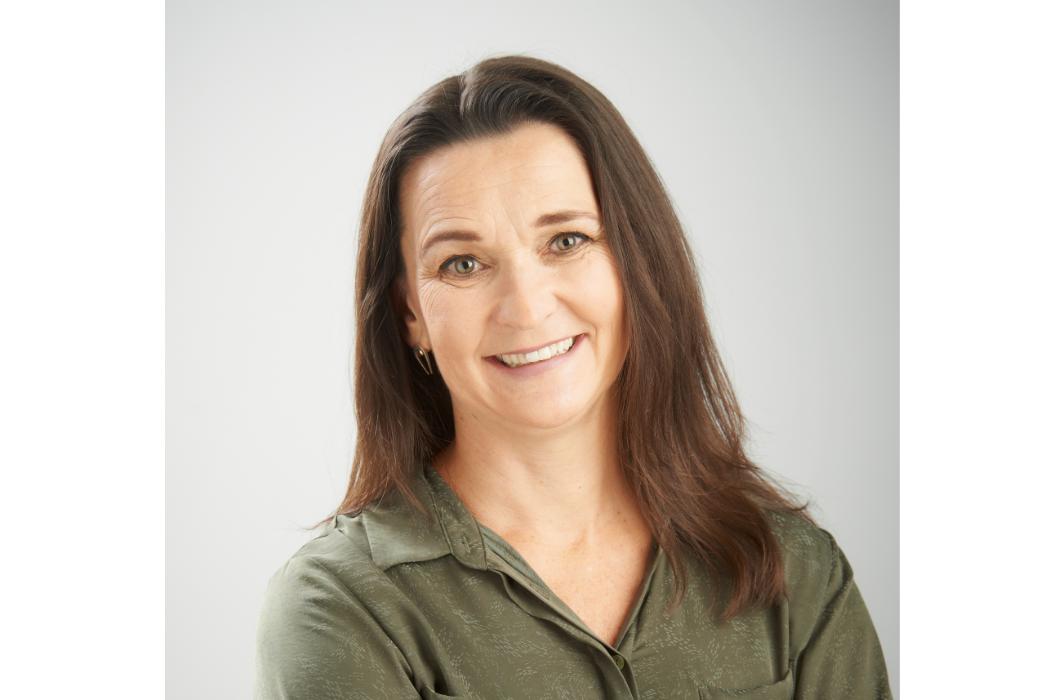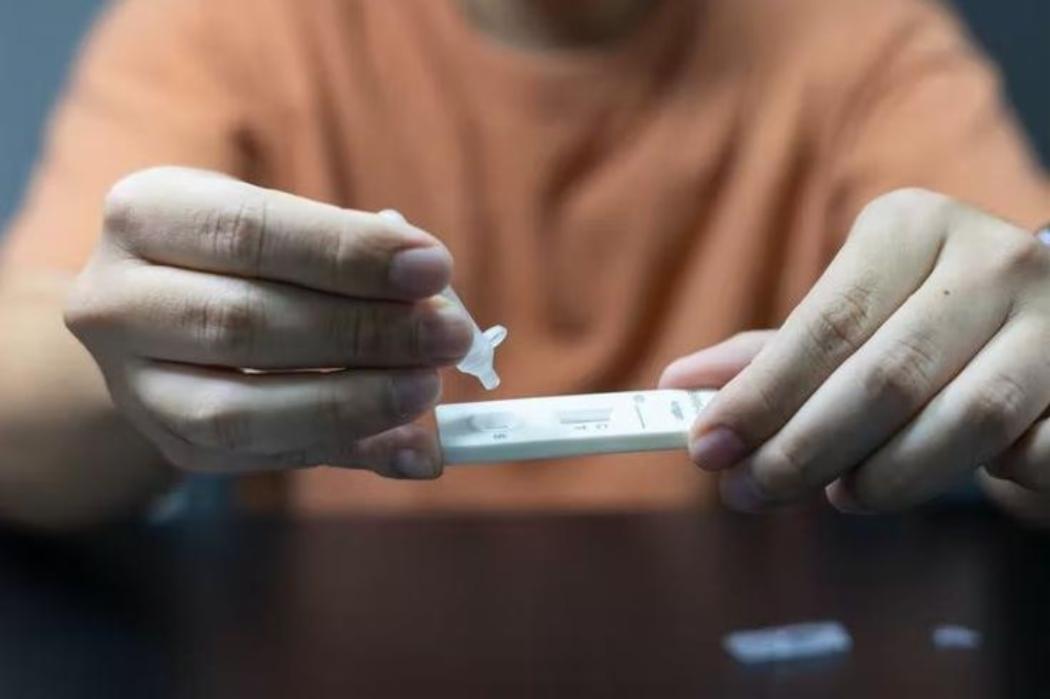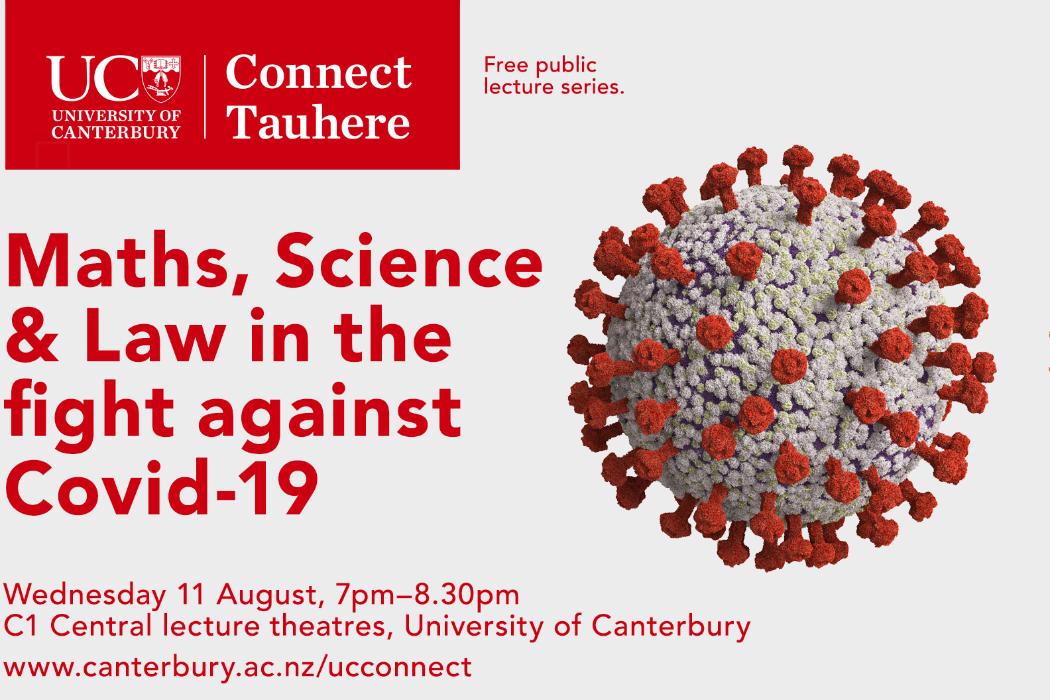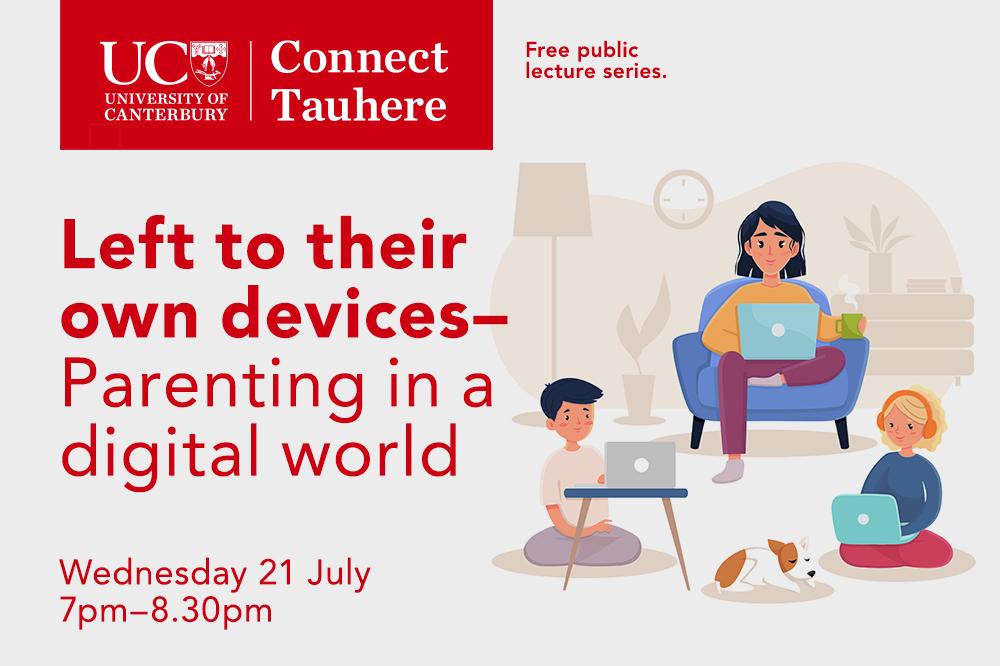Innovation in health and safety recognised
A collaborative effort by our Grounds team won them UC’s 2022 Health & Safety Award, the second award the team has received in the last three years for being innovative in health and safety initiatives. The team are responsible for collecting on average 20 tonnes of leaves each year, and won the award this year for their modification of an existing tractor-mounted leaf-sucker unit to a more ergonomic trailer-mounted design, greatly reducing fatigue and muscle strain for operators during the five-week leaf drop season.
Helping NZers stay healthy
Wanting people to live healthier and happier lives is a big motivation for UC’s senior lecturer in public health Dr Matt Hobbs, who was recognised for outstanding work in his field. Dr Hobbs won UC’s Early and Emerging Career Researcher Award for his research investigating public health inequities which affect some of Aotearoa New Zealand’s most vulnerable groups. His research has covered how community water fluoridation can reduce preventable hospital admissions for children, the longterm health impacts of air pollution exposure, childhood and maternal immunisation, and how the environments young people grow up in can affect their mental health.
Wellbeing Matters
UC aims to provide a sustaining environment where the holistic wellbeing of students, staff and our community enables our people to be successful, engaged, empowered and making a difference. Our Wellbeing Matters Platform offers a raft of tools to help everyone thrive. Each month, new content is released based on a wellbeing theme, including evidence-based articles, wellbeing tips and challenges, worksheets, quizzes, videos, webinars, workshops and podcasts, all designed to motivate and build good wellbeing habits, one habit at a time.
Health issues in the community
In this UC course students are provided with the foundation to understand health issues in the community and to develop skills related to improving it. Students are introduced to concepts, practices and skills to effect better health and wellbeing within communities, and student can
also ‘deep dive’ into community health issues, being able to choose one health issue and a focus community for the whole course, with all three modules and assessments based around the issue and community.
Study tackles collisions in junior rugby players
A two-year world-leading UC study kicked off the 2022’s rugby season amid growing concern about health and safety in the sport. Lead researcher Professor Nick Draper aims to better understand collisions in junior rugby. Professor Draper, who is an experienced junior rugby
coach, says the study is timely given rising concern from parents and the rugby union community about health risks associated with head collisions. MRI scans will be carried out on the player pre-season, post-season and after any concussive collision as part of the research. The football clubs involved have expressed their support for the research and say they look forward to Professor Draper’s findings.
Te Rua Makerspace
Each month, at least 500 UC students and staff visit Te Rua Makerspace in the central library, where Jessica Saul enthusiastically caters to different interests, skill levels, and needs. Saul graduated with a Bachelor of Design Innovation majoring in Industrial Design and earned her master’s degree in designing wearable medical robotics. Te Rua Makerspace is a large, airy room with 3D printers, sewing machines, a textile printing machine, a long table for drawing, a games area, and several pressing machines. “It’s the community hub for creators from across the
university, whether you are staff or a student – we welcome everyone,” Saul says. Saul sees the effects spending time in Te Rua Makerspace has on people. “It’s amazing how a short time here can transform someone who comes in visibly stressed out and not ready to talk, but after 10
minutes of drawing or me saying ‘hey, would you like to just colour with me?’ they are ready to try another activity or talk about what’s stressing them,” says Saul.
Mental health and nutrition
Professor Julia Rucklidge developed an 8-week course based on her worldleading research into the links between nutrition and mental well-being.
Course participants learn what foods and nutrients should and should not be consumed to improve mental wellbeing and explore the fundamental role that nutrition plays in our mental health. Professor Rucklidge and other experts in psychology, toxicology, and nutrition cover the history of using food as a treatment for mental health; the food components to consider when making dietary choices; and why we need to consider micronutrients in our food, such as minerals and vitamins, for building a better brain. Over 47,122 have already enrolled!
Health support
A variety of health support systems are available on and off campus, from personal one-on-one connections to a raft of online support mechanisms inhouse and external to UC. Our Health Centre offers free counselling to students, and the Student Care Team and Chaplains are also available to give advice and support on a wide range of issues. Our Psychology Centre offers students an opportunity to participate in a wide range of psychological assessments and treatments.
Covid modellers win UC research medal
Associate Professor Alex James and Professor Michael Plank won UC’s Research Medal in 2021 for their work developing mathematical models that helped guide New Zealand’s response to the Covid-19 pandemic. Since early March 2020, the pair have been key members of the national team of scientists at award-winning research centre Te Pūnaha Matatini, which provided a series of mathematical models informing the New Zealand Government’s efforts to combat Covid-19. UC’s Deputy Vice- Chancellor of Research and Innovation Professor Ian Wright says their efforts undoubtedly led to lives being saved: “Their world-beating research and deep engagement with the Government has had significant health and social impacts. They have combined pioneering science, clear communication and lightning speed to keep pace with the challenges of a rapidly evolving pandemic. They’ve also played a role in providing leading science communication to the public.”
Relationships and Sexuality App
A relationships and sexuality mobile app for Young People is being developed by UC. Led by our Health Education Lecturer Tracy Clelland, with 30 years of experience in sexuality and relationships education, the mobile app is being designed by UC software engineers and postgraduate students. Clelland says: “This app is about giving young people knowledge, understanding and skills to have healthy, happy relationships across the life course.” An app is a great way for young people to access information, she says, because most own and regularly use a mobile phone, and it is private. “This app will be a resource where parents can get up-to-date information about the laws around consent, gender diversity and the latest types of contraception, and other topics. Our app will include safe, reliable information about sex as well as gender, consent, love, and where to access help”, says Clelland.
Menopause at work project
The Menopause Awareness Project Team won our 2021 Health and Safety Initiative Award for launching an educational programme, with key aims to educate staff on the range of possible symptoms, raise awareness about potential impacts, and remove the stigma of talking about menopause at work. Resources for staff include a comprehensive guideline, webpage, contact details of a new UC support group, and other helpful resources. The project was launched on World Menopause Day, 18 October 2021, followed by a seminar for staff by a leading endocrinologist. “Around a quarter of our female staff are in the demographic of potentially experiencing the symptoms of menopause. We want to ensure that every manager knows how menopause can affect women, that there are a wide range of symptoms, and everyone experiences menopause differently. This will help staff members get appropriate support, if required, to succeed at work,” the Team’s spokesperson Jules Stafford says.
Research into e-cigarette use after legalisation
A research team led by Health Sciences Dr Ben Wamamili has found New Zealand students are vaping more since nicotine-containing e-cigarettes became legal in the country. Students were surveyed in March 2018, just before nicotine-containing e-cigarettes became legal, and were surveyed one year later in March 2019, across all of Aotearoa’s universities. Dr Wamamili’s team found that 13.5% of students were vaping in 2019 compared to 6.8% before it was legal. The results were unexpected. The issues can be addressed with better education and possibly by using technology. Dr Wamamili says, “Education and health promotion strategies including compliance with the smokefree legislation is a good starting point. Technologies such as mobile phone apps could also be harnessed by health providers to provide accurate and reliable information about vaping.” New Zealand aims to become a smoke-free nation by the year 2025; the Government began working toward this goal in 2011.
School of Health Sciences
Our School of Health Sciences is making a significant contribution towards improving health outcomes and making meaningful change in people’s lives. Programmes and research meet the needs of modern healthcare and society. Undergraduate degrees are the Bachelor of Health Sciences and the Bachelor of Sport Coaching, and postgraduate degrees include Health Sciences, Sport Coaching, Counselling, Child and Family Psychology and Nursing.
Awards for COVID-19 Response
The 2020 New Zealand Prime Minister’s Science Prize was awarded to the Te Pūnaha Matatini (TPM) research centre for its COVID-19 response. TPM is a national collaborative team of academics and researchers. UC’s team members are mathematical modellers Professor Michael Plank and Associate Professor Alex James, data scientist Senior Lecturer Dr Giulio Dalla Riva, and UC graduate researchers Dr Rachelle Binny, Nic Steyn, and Dr Audrey Lustig. Their work was recognised for developing a series of mathematical models, analysing data and communicating the results to inform the New Zealand Government’s response to the global pandemic.
Central to their work has been predicting impacts on at-risk communities, including Māori and Pasifika populations. Professor Plank was also recently awarded the Australia and New Zealand Industrial and Applied Mathematics (ANZIAM) EO Tuck Medal for 2021 for outstanding research, expertise and distinguished service in the field of Applied Mathematics.
Nutrition and Mental Health
New Zealand Government reporting reveals increasing numbers of our adolescents struggle with mental health issues. In 2020, Professor Julia Rucklidge and her team commenced researching nutritional interventions that are effective in treating psychiatric/psychological illness. Professor Rucklidge is a UC Clinical Psychology academic and leader within our Child Well-being Research Institute. Professor Rucklidge explains: “There is a growing association between an individual’s poor diet and poor mental health. However, it is not always realistic to manipulate diet, particularly in teenagers. Research over a decade has demonstrated efficacy in using micronutrients to treat psychiatric symptoms, but we need to explore whether coupling this approach with technology can expand reach, reduce cost and be a more acceptable way to address mental health problems.”
Supporting our Pacific Island Neighbours
Our Biomedical minor programme was developed to respond to student enthusiasm and to increase diversity among students choosing to study Mechanical Engineering, such as female, Māori and Pasifika students. Its curriculum emphasises bioethics, sustainability and responsibility, specifically biomedical design for reuse and donation. Student projects focus on real world applications. In the summer of 2020, students went to Tonga to support the Ministry of Health, and created a much needed Assets Register to track consumables. Another project involved updating the Tongan nursing handbook on how to use, maintain, and repair common medical equipment. The project resulted in an increase of capabilities and independence of nursing staff who provide time-critical nursing to the Tongan people, and less workload pressure for the small number of technicians often called upon to demonstrate equipment use.
Our Well-being Implementation Plan
We recognise people are our greatest asset. Adopting the Te Pae Māhutonga well-being model, our Mahere Oranga | Well-being Implementation Plan (2020-2024) was introduced to enhance our capability for supporting the well-being of our students and staff. Through this structured programme, we want UC to be a place where individuals are empowered with the knowledge and resources they need to nurture their well-being. Ultimately, our goal is that the plan will lay the foundations for us to achieve our Strategic Vision objective: “By 2030 UC will be known for its focus on well-being.”
UC’s Pilot Well-being Supporter Programme
Mental health disorders are a significant cause of health loss for all New Zealanders. In 2020 we launched our pilot Kaihāpai Oranga | Wellbeing Supporter programme across Engineering and Science with the aim of promoting a culture that removes the stigma associated with mental distress and helping people to help themselves. The programme has a dedicated UC intranet site offering staff a raft of meaningful, supportive and encouraging resources. It also includes the contact details for our Kaihāpai Oranga 21 trained volunteers, comprising academic and professional staff, who offer other UC staff who reach out, the appropriate support, care and encouragement, in a safe and non-judgemental environment.
Healthcare on Campus
UC’s Health Centre offers a full range of General Practitioner services, including many self-help healthrelated resources, to keep students and staff healthy and well. The Centre can treat acute and chronic conditions and can help with preventative measures, for example flu vaccinations, health checks/screening, injuries, minor surgery, and dietary advice/support. Highly trained counsellors are also available to help with a range of problems like grief, anxiety, depression, loneliness, and homesickness. Health services are accessible either on campus or from the comfort of your own home, 24/7.
